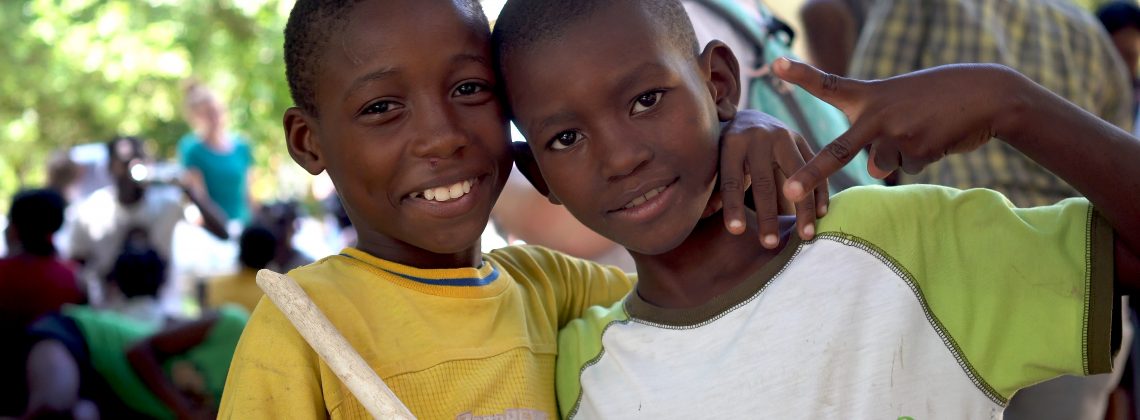

Do you want to make America great? Widen the circle.
Four years ago a Chilean friend told me that 9000 Haitians went to Chile every month. I was perplexed. Haitian immigrants were mainly a novelty in my native country of Argentina. I knew some had gone to Buenos Aires, but not in the thousands—certainly not at the rate in which they were going to Chile. The southern cone of Latin America is not known for its hospitality towards immigrants of dark complexion, either. So why would Haitians want to go to Chile?
The answer came on September of 2021 when thousands of Haitians showed up at the border of Del Rio, Texas. Telemundo went to cover the crisis at the border and, to my surprise, many of the Haitians spoke to reporters in fluent Spanish. Then it made sense. These thousands of Haitians who immigrated to Chile, Brazil, Argentina, and other Latin American countries did not go there to stay. Rather, their final destination was the United States.
At the U.S.’s southern border these Haitian refugees were met with a brutality that is unfortunately familiar to Latin American migrants. Border agents on horseback awaited them with whips in order to drive them back into Mexico. When these refugees were finally allowed into the U.S., they were promptly ushered onto a plane. In just two weeks over 6000 Haitian nationals were deported back to Haiti by President Biden’s Department of Homeland Security.
These deportees had started their journey to the U.S. years ago. Some had lived in South America since the 2010 earthquake. In many cases children were being deported to a country unknown to them. Even with images of children locked in cages still fresh on our minds, refugees continue to come seeking a mercy this country refuses to extend, regardless of its president. Remarkably, despite evidence to the contrary, refugees remain unwaveringly faithful to the lore of a nation that welcomes the tired, poor and huddled masses yearning to breathe free.
As I describe in Prosperity Gospel Latinos and Their American Dream (University of North Carolina Press, 2020), Latin American immigrants remain relentlessly hopeful about the prospects of achieving the American Dream—even while living the nightmare of discrimination and exclusion. The Prosperity Gospel teaches that God yearns to bless everyone with whatever their hearts desire, but that Christians must take faithful action to bring about those blessings. Such acts of faith include prayer, fasting, giving money to the church, or hard work.
The Latinos devoted to the Prosperity Gospel whom I encountered in my research had adopted a deeply meritocratic theology before they arrived. They come to the United States with the firm conviction that if they work hard and live moral lives they will be rewarded with success and prosperity. Yet these immigrants are not completely naïve. They know hard work alone will not necessarily lead to success. They know the legal, economic, and cultural systems in this country are set up against the flourishing of dark-skinned residents. So, the Prosperity Gospel empowers Latino Christians to practice what I call miraculous meritocracy. This form of meritocracy rewards hard work with miracles that will lead to the American Dream. For marginalized people who are denied access to the golden path of the American Dream, the Prosperity Gospel offers an alternative route.
Prosperity Gospel is essentially a Gospel of the American Dream. It is the conviction that if you work hard, follow the rules, and keep the faith, you’ll have a chance at the good life. It’s the American Dream because it is only possible in America. It is not a Chilean, Brazilian, or a Caribbean Dream. That’s why Haitian refugees gathered at the U.S.’s southern border this fall. They were lured by the same hope that had convinced refugees and migrants for centuries to leave everything behind for a shot at this idea of a good life.
Paradoxically, our rejection of immigrants and refugees is a rejection of the American Dream so cherished in this country. It is the rejection of a narrative that this nation desperately needs. For what drives our economy is the conviction that we deserve good things. At the foundation of our democracy is the belief that every individual is empowered to determine their own future. What unifies those on opposite sides of the ideological divide is the pursuit of life, liberty, and happiness. When the power of these myths end, so do this nation’s hopes.
It is noteworthy that the recent rise in deaths of despair is attributed to a deep faith in this myth. Violent right-wing extremism is basically an effort to take America back to a mythical time when the dream was allegedly alive. Yet, what these nativists do not understand is that if the dream is not true for new immigrants, it is not true for anyone.
In this way, American despair is fundamentally tied to the despair of the Haitian refugees seeking asylum on the southern border. It may be hard to grasp, but we must begin to see that the fulfillment of the American Dream for those in the U.S. is intertwined with the American Dream that anchors so many who come to our borders. Strangely enough, America can be made great by allowing more immigrants into the country. Immigrants are the ones who confirm the universality of the dream, and it is their faith in the dream that makes America unique among nations. The end of the American Dream for them signals the end of that same dream for America itself.
Rev. Tony Tian-Ren Lin, PhD, is author of Prosperity Gospel Latinos and Their American Dream (UNC Press, 2020). He is a sociologist and a Presbyterian minister living in New York City.
Rev. Tony Tian-Ren Lin, PhD, is author of Prosperity Gospel Latinos and Their American Dream (UNC Press, 2020). He is a sociologist and a Presbyterian minister living in New York City.